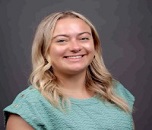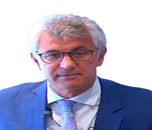Understanding the Neurobiology of Autism Spectrum Disorders
This session aims to delve into the intricate neurobiological mechanisms underlying autism spectrum disorders (ASD). Experts will explore the latest research findings on brain structure, connectivity, and genetic factors associated with ASD. Attendees will gain insights into the role of neurotransmitters, neural circuits, and immune system dysregulation in autism. The session will provide a foundation for comprehending the complex interplay between genetics, brain development, and behavioral manifestations observed in individuals with ASD.
2 Effective Strategies for Early Autism Diagnosis
This session will focus on equipping professionals and caregivers with effective strategies for early autism diagnosis. Participants will learn about early warning signs and red flags that indicate potential autism spectrum disorders (ASD) in young children. Experts will share evidence-based assessment tools, screening protocols, and diagnostic criteria for early identification. Additionally, the session will discuss the importance of multidisciplinary collaboration and early intervention services to optimize outcomes for children with ASD and their families
3. Promoting Social Communication Skills in Individuals with Autism
This session aims to explore practical strategies for enhancing social communication skills in individuals with autism spectrum disorders (ASD). Attendees will learn evidence-based interventions and techniques for improving social interaction, nonverbal communication, and social-emotional reciprocity. Experts will discuss the importance of incorporating visual supports, social stories, and structured play activities to facilitate social skill development. The session will also address the role of peer-mediated interventions and inclusion programs in fostering positive social interactions and building meaningful relationships for individuals with ASD.
4. Supporting Transition to Adulthood for Autistic Individuals
This session will focus on providing guidance and support for the transition from adolescence to adulthood for individuals on the autism spectrum. Experts will discuss key challenges and potential barriers faced by autistic individuals during this critical life phase. Attendees will learn about effective transition planning, including vocational training, independent living skills, and community integration programs. The session will highlight person-centered approaches, empowerment strategies, and resources available to promote a successful transition and enhance the overall well-being of autistic individuals as they navigate adulthood.
5. Inclusive Education: Empowering Autistic Students in Schools
This session will focus on promoting inclusive education practices that empower autistic students in school settings. Participants will gain insights into creating an inclusive classroom environment, fostering positive social interactions, and addressing individual learning needs. Experts will share strategies for modifying curriculum, implementing visual supports, and promoting peer acceptance and support. Attendees will learn about collaboration between educators, parents, and support professionals to ensure that autistic students thrive academically, socially, and emotionally within the school community.
6. The Role of Assistive Technology in Autism Interventions
This session will explore the valuable role of assistive technology in supporting individuals with autism spectrum disorders (ASD). Experts will discuss a range of assistive technologies, including communication devices, visual aids, and sensory tools, that can enhance communication, independence, and daily functioning for individuals with ASD. Attendees will learn about effective selection, implementation, and customization of assistive technology to meet the unique needs of individuals with autism. The session will highlight success stories and practical strategies for integrating assistive technology into autism interventions.
7.Advances in Genetic Research for Autism Spectrum Disorders
This session will provide an overview of the latest advances in genetic research pertaining to autism spectrum disorders (ASD). Experts will discuss the identification of specific genes and genetic variants associated with ASD, as well as the complex interplay between genetic and environmental factors. Attendees will gain insights into the potential implications for diagnosis, personalized treatments, and early intervention. The session will highlight the ongoing research efforts aimed at unraveling the genetic underpinnings of ASD and their potential impact on improving outcomes for individuals with autism.
8.Addressing Mental Health Challenges in Autistic Adults
This session will focus on the unique mental health challenges faced by autistic adults and strategies to support their well-being. Experts will discuss common co-occurring conditions, such as anxiety, depression, and sensory sensitivities, that impact mental health. Attendees will learn about effective assessment tools, therapeutic interventions, and self-care practices tailored to the needs of autistic adults. The session will emphasize the importance of destigmatizing mental health, promoting access to mental health services, and fostering a supportive and inclusive environment for autistic adults.
9.Family-Centered Approaches for Autism Support
This session will highlight the significance of family-centered approaches in supporting individuals with autism spectrum disorders (ASD). Experts will discuss the critical role of families as partners in intervention planning and decision-making. Attendees will learn about strategies for fostering family resilience, promoting effective communication, and addressing the unique needs of siblings and caregivers. The session will emphasize the importance of collaborative relationships between professionals and families to create comprehensive and tailored support systems that enhance the overall well-being of individuals with ASD and their families.
10. Autism and Employment: Breaking Barriers, Unlocking Potential
This session will explore the challenges and opportunities related to employment for individuals on the autism spectrum. Experts will discuss strategies for breaking down barriers and promoting inclusive hiring practices. Attendees will gain insights into effective workplace accommodations, vocational training programs, and supportive services that enhance employment opportunities for autistic individuals. The session will highlight success stories and best practices from employers and organizations dedicated to creating inclusive work environments that unlock the untapped potential of individuals with autism.
11. Sensory Processing Issues in Autism: Assessment and Intervention
This session will delve into the complex topic of sensory processing issues in individuals with autism spectrum disorders (ASD). Experts will discuss assessment methods to identify sensory sensitivities and challenges experienced by individuals with ASD. Attendees will learn about evidence-based interventions and strategies to address sensory processing difficulties, including sensory integration therapy, environmental modifications, and sensory diets. The session will emphasize the importance of a comprehensive and individualized approach to support individuals with autism in managing sensory issues and optimizing their overall well-being.
12. Autism and Co-occurring Conditions: Strategies for Dual Diagnosis
This session will focus on the recognition and management of co-occurring conditions in individuals with autism spectrum disorders (ASD). Experts will discuss common co-occurring conditions such as ADHD, anxiety, and epilepsy, and the impact they can have on individuals with ASD. Attendees will learn about effective assessment strategies, treatment approaches, and interventions that address the unique needs of individuals with dual diagnoses. The session will highlight the importance of interdisciplinary collaboration and comprehensive care for optimizing outcomes in individuals with autism and co-occurring conditions.
13. Cultural Considerations in Autism Assessment and Treatment
This session will explore the importance of cultural sensitivity and awareness when assessing and treating autism spectrum disorders (ASD) within diverse cultural contexts. Experts will discuss the impact of culture on autism identification, diagnostic processes, and intervention approaches. Attendees will gain insights into the role of cultural values, beliefs, and practices in shaping perceptions and experiences of autism. The session will highlight strategies for adapting assessment tools, incorporating cultural perspectives, and fostering culturally responsive interventions to ensure effective and culturally sensitive support for individuals with ASD and their families.
14. Effective Interventions for Challenging Behaviors in Autism
This session will focus on evidence-based interventions for addressing challenging behaviors commonly observed in individuals with autism spectrum disorders (ASD). Experts will discuss strategies for identifying the underlying causes of challenging behaviors, implementing behavior management techniques, and promoting positive behavior supports. Attendees will learn about functional behavior assessments, behavior intervention plans, and proactive strategies to reduce challenging behaviors and improve overall quality of life for individuals with ASD. The session will emphasize the importance of individualized and person-centered approaches in effectively addressing challenging behaviors.
15.Promoting Autistic Advocacy and Self-Advocacy
This session will explore the importance of promoting autistic advocacy and self-advocacy for individuals on the autism spectrum. Experts will discuss strategies for empowering autistic individuals to advocate for their own needs, rights, and inclusion. Attendees will learn about self-advocacy skills development, building self-confidence, and fostering a supportive community for autistic individuals. The session will highlight successful self-advocacy initiatives and resources, promoting a greater understanding and appreciation for the voices and perspectives of autistic individuals.
16. Parent-Professional Collaboration in Autism Intervention
This session will emphasize the crucial role of parent-professional collaboration in effective autism intervention. Experts will discuss the benefits of a collaborative approach, promoting open communication, and building strong partnerships between parents and professionals. Attendees will learn about strategies for engaging parents as active participants in their child's intervention plan, sharing resources and expertise, and fostering a cohesive support network. The session will highlight successful models of parent-professional collaboration and empower attendees to establish collaborative relationships that enhance the outcomes and well-being of individuals with autism.
17. Latest Trends in Autism Research and Innovations
This session will provide an overview of the cutting-edge trends in autism research and innovative approaches to autism intervention. Experts will discuss emerging research findings, advancements in technology, and novel treatment modalities that are shaping the field of autism. Attendees will gain insights into topics such as early detection, personalized therapies, biomarkers, and neurodiversity. The session will showcase the latest breakthroughs and encourage a forward-thinking mindset to improve understanding, support, and outcomes for individuals with autism spectrum disorders.
18. Autism and Gender: Understanding Intersectional Experiences
This session will explore the intersectionality of autism and gender, shedding light on the unique experiences of individuals who identify as both autistic and non-binary, transgender, or gender diverse. Experts will discuss the impact of gender identity on autism diagnosis, access to support services, and social experiences. Attendees will gain insights into promoting inclusivity, fostering understanding, and addressing the specific needs of autistic individuals within the context of gender identity. The session will emphasize the importance of embracing diversity and creating affirming environments for all individuals on the autism spectrum.
19.Supporting the Mental Health of Siblings of Autistic Individuals
This session will focus on the unique experiences and challenges faced by siblings of individuals on the autism spectrum. Experts will discuss the potential impact on mental health and well-being, as well as strategies to support and empower siblings. Attendees will learn about promoting sibling relationships, fostering open communication, and providing resources for emotional support. The session will highlight the importance of recognizing and addressing the specific needs of siblings in order to promote their overall mental health and resilience.
20.Implementing Evidence-Based Practices in Autism Services
This session will provide guidance on the effective implementation of evidence-based practices in autism services. Experts will discuss the importance of using research-supported interventions and strategies to ensure quality care and positive outcomes for individuals with autism spectrum disorders (ASD). Attendees will learn about key components of successful implementation, such as training staff, monitoring progress, and adapting interventions to individual needs. The session will highlight case studies and best practices to guide participants in delivering evidence-based services in their respective settings.











